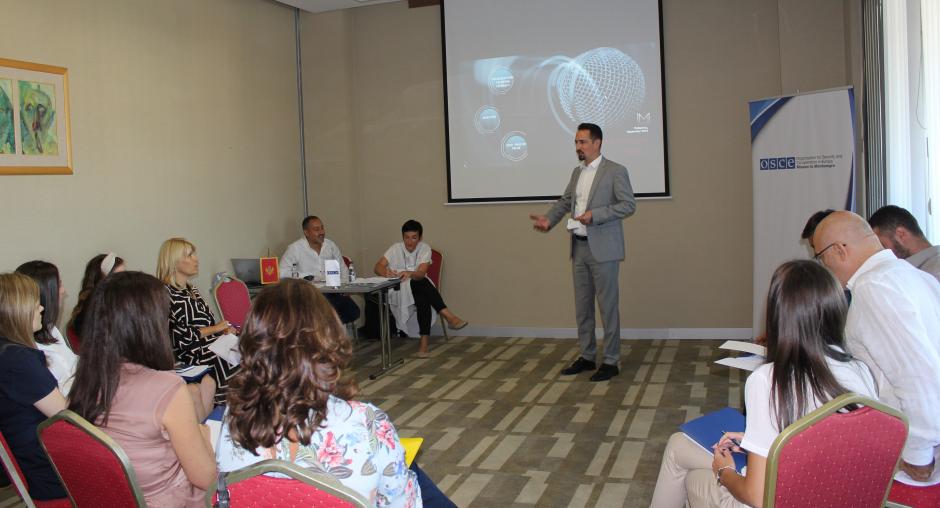OSCE Mission to Montenegro organizes training on Media Literacy

In order to improve media professionals and students of journalism knowledge of media literacy, the OSCE Mission to Montenegro is organizing a six-day training course from 16 to 21 September 2019, in Podgorica, for 20 participants from the office of the Protector of Human Rights and Freedoms (Ombudsman), the Agency for Electronic Media and journalism students.
Opening the training course, Daniel Blank, the OSCE Mission Media Programme Manager, said that the Mission has been regularly engaged in promoting media and information literacy. “In our fast changing world, with new technologies and media platforms emerging on a daily basis, media and information literacy is constantly changing,“ said Blank.
This training is part of a long-term strategy to better acquaint media professionals and young people with the latest knowledge and best practices in this field.
Two media literacy experts, Vanja Ibrahimbegović Tihak and Mihajlo Lahtov are facilitating the training.
Explaining the main purpose of the training, expert Ibrahimbegović Tihak said that the training will examine what media literacy means at the individual level, and on a societal level. “Today, there is no strict division between the creator and the consumer – we are both, which is why communication in the public process implies responsibility,” she said.
According to expert Lahtov, media literacy is an important component part of any democratic society. “Media literate citizens are more difficult to manipulate. They value and fight for freedom. Knowledge and education is the ticket to success. Media literacy is just that literacy for future generations who will be better and more professional citizens,” he said.
Participants agreed that in today’s world it is often difficult to check the validity and the source of information. The main goal of the training is to tackle the lack of knowledge and provide tools for a critical examination of media content.
The OSCE Mission recognizes the need for media literacy training programmes to educate media professionals about what it means to be able to “critically read the media”: to view media reports with a sceptical eye, to question and investigate, not only to consume. As part of the media literacy activities, the Mission recently launched the campaign on media literacy to encourage critical thinking in consuming media content.
